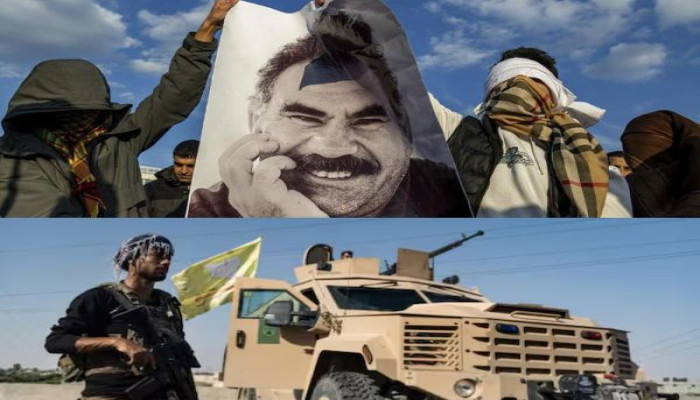PKK declares end to armed struggle with Turkey after four decades
- In Reports
- 07:46 PM, May 12, 2025
- Myind Staff
The Kurdistan Workers Party (PKK), which has fought Turkey in a violent conflict for more than 40 years, decided to dissolve and end its armed struggle. PKK members and Turkish officials confirmed this on Monday.
The PKK began its insurgency in 1984 with the aim of creating an independent Kurdish state. The fighting has killed over 40,000 people, placed a huge burden on Turkey’s economy, and fuelled social tensions.
The PKK’s decision may help stabilise Turkey politically and economically. It could also ease tensions in Iraq and Syria, where Kurdish forces align with the United States.
Turkey welcomed the PKK’s move to dissolve. However, officials warned that this does not guarantee peace. Both sides must now work out a complex legal framework to ensure the safe disarmament of the PKK, which Turkey and its Western allies classify as a terrorist group.
Firat news agency reported, “The PKK 12th Congress decided to dissolve the PKK's organisational structure… and end the armed struggle,” quoting from the final declaration of a congress held last week in northern Iraq, where the PKK is based.
A PKK official confirmed the decision separately. He said all military operations would stop “immediately.” But he added that handing over weapons would depend on Ankara’s response to Kurdish rights and the treatment of PKK members and leaders.
Kurds make up about 20% of Turkey’s population of 86 million.The PKK held its congress after Abdullah Ocalan, its imprisoned leader, called for disbandment in February. Ocalan has been jailed on an island south of Istanbul since 1999. The PKK said on Monday that Ocalan would oversee the disbandment process.
It remains unclear if Ankara supports Ocalan continuing to play a role. Polls suggest many Turks might oppose it. The PKK has also not provided details on how it plans to disarm or dismantle the organisation. It is also uncertain whether the move will affect the Kurdish YPG militia in Syria. The YPG leads a U.S.-backed force fighting the Islamic State and is seen by Turkey as a PKK affiliate.
The YPG had previously said Ocalan’s disbandment call did not apply to it, contradicting Ankara’s position. The YPG has not yet responded to the PKK’s announcement.
The PKK’s move could allow President Tayyip Erdogan to boost development in southeastern Turkey, a Kurdish-majority region where the conflict has hurt the economy for decades.
Fahrettin Altun, communications director for the Turkish presidency, said Turkey would take all necessary steps to move toward a “terror-free” country after the PKK’s announcement. The PKK said it had “completed its historic mission.” Over time, its goal shifted from seeking an independent state to demanding broader Kurdish rights and limited autonomy in southeast Turkey.
“The PKK struggle has broken the policy of denial and annihilation of our people and brought the Kurdish issue to a point of solving it through democratic politics,” the group said on the Firat news website, which also showed images of senior PKK members at the congress in military fatigues.
The pro-Kurdish DEM Party helped support Ocalan’s peace call. Tayip Temel, a deputy leader of the party, told Reuters the PKK’s decision was important for Kurds and for the broader Middle East.
“This will also require a major shift in the official state mentality of Turkey,” he said.
Analysts said Erdogan, who has made past efforts to end the conflict, may see domestic political gains in a peace process as he seeks to extend his rule beyond the end of his term in 2028.
The PKK’s decision came during political upheaval. In March, authorities jailed Istanbul’s opposition mayor Ekrem Imamoglu, on corruption charges. The arrest sparked the largest protests in Turkey in a decade. Imamoglu is seen as Erdogan’s main rival.
After the PKK’s announcement, the lira held steady at 38.765 against the U.S. dollar, and shares on the Istanbul stock exchange rose 3%.
Some people welcomed the news in Diyarbakir, the biggest city in southeastern Turkey. Many Kurds there had grown sceptical about peace due to distrust of the government.
“It is really important that people do not die anymore, that the Kurdish problem is solved in a more democratic structure,” said Hasan Huseyin Ceylan, 45. He called the PKK’s move significant for both Kurds and Turks.
There have been peace efforts in the past, the most notable being a ceasefire between 2013 and 2015, which eventually collapsed.
Ending the conflict could remove a long-standing source of instability in Kurdish-run, oil-rich northern Iraq. It might also help Syria’s new government reassert control over northern Syrian areas currently held by Kurdish forces.
Ocalan made his call to disband after a surprise proposal in October by Devlet Bahceli, Erdogan’s ultra-nationalist ally. The call received support from the U.S., the European Union, Iraq, and Iran, all countries with large Kurdish populations.







Comments